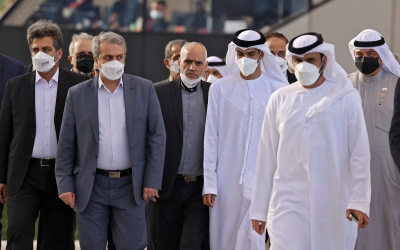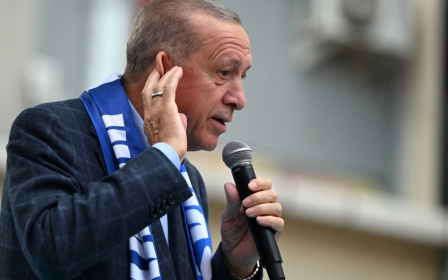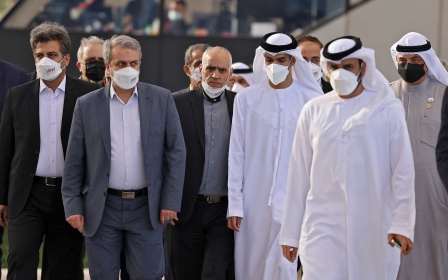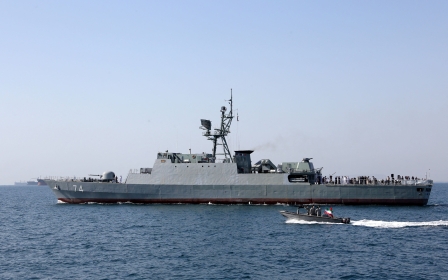Iranian press review: Politicians divided over Turkey election candidates
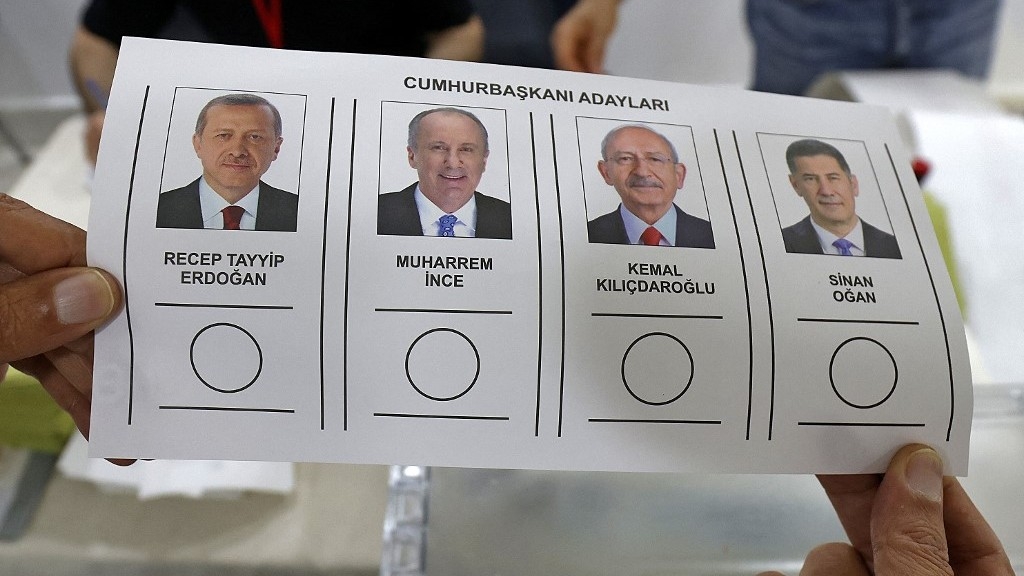
Politicians divided over elections in Turkey
Ahead of the presidential elections in Turkey, Farsi media have speculated whether the victory of President Recep Tayyip Erdogan's main rival would benefit Iran's economy and hegemony in the region.
On Tuesday, the Khorasan daily published a photo of the Turkish opposition's joint presidential candidate Kemal Kilicdaroglu holding a map showing his proposed highway and railway project, connecting Turkey to China through Iran.
The daily wrote that Kilicdaroglu's victory in the elections could strengthen Iran's role in the Middle East, despite his pro-Western politics.
"When the most pro-west rulers in the Middle East, such as [Saudi Arabai's] Bin Salman,[the UAE's] bin Zayed and [Egypt's] el-Sisi have turned to Iran, such move from Kilicdaroglu will not come as a surprise," wrote Khorasan.
The daily added that some politicians in Tehran expected that Kilicdaroglu would not follow Erdogan's regional policy of intervening in Syria, Iraq, and Azerbaijan.
Khorasan added that the majority of politicians in Iran support Erdogan. However, it stressed that counting on Erdogan's promises would be a mistake.
"Erdogan's unpredictable and sudden decisions make it difficult to predict his moves… the previous experience has proved that Erdogan's moves can dramatically change from this hour to the next," the daily wrote.
Iranians selling organs in Turkey, Dubai and Iraq
As US and European sanctions on Iran have blocked ordinary citizens from accessing the international market, banking system, and free global movement, their body organs are being sold to clients in Turkey, Iraq, and Dubai.
In an investigative piece, the Jahane Sanat daily wrote about how the country's illegal market for trading body parts has gone international because Iranians could no longer afford to pay the high prices themselves.
'Prices are so high that Iranian must sell their apartments or cars to gather enough funds to buy a kidney'
- Jahane Sanat daily
"Prices are so high that Iranian must sell their apartments or cars to gather enough funds to buy a kidney.
"That is why now this market has expanded to the neighbouring countries, and the middlemen sell Iranians' body parts for prices between seven and fifteen thousand dollars," wrote the daily.
The body organ sellers that Jahane Sanat spoke with announced one reason for their decision: poverty.
Daily labourers, single mothers, and young people suffering from severe poverty were among the sellers that the daily spoke with.
"I'm 22 and healthy; I have done all the necessary medical tests. I've worked as a labourer since I was a kid, but my family's economic situation is terrible, and I have no choice but to sell my kidney. I'm also ready to sell a part of my liver," one seller told the daily.
The labourer asked for 5 billion Iranian rials (about $9,500) for his kidney and 2 billion (about $3,773) for a part of his liver.
On Tuesday, the daily's editor-in-chief was summoned to court because of "not presenting any evidence for the claims" made in this article. The article was later removed from the Jahane Sanat website.
More details revealed about SUV bribery
A week after the impeachment of Iran's industry minister, Reza Fatemi Amin, a legislator revealed further details about the politicians and entities bribed with SUV cars, a new corruption case in the country widely known as "SUV-gate".
In late April, Ahmad Alireza Beigi, a member of parliament from the city of Tabriz, revealed that Fatemi Amin's ministry had offered 75 SUV cars to legislators to escape an earlier impeachment session.
The new revelation showed that officials working in the education ministry, the higher education ministry, the civil servants' pension organisation, the roads and urban development ministry, the energy ministry, the planning and budget organisation, the sports ministry and the country's social security organisations were also among the receivers of the SUV cars.
Ehsan Arkani, a legislator from the city of Neyshabur, announced the name of these governmental offices in an interview with the ILNA news agency on Saturday.
"We suggest that a [truth finding] committee investigates the case of handing over vehicles to ministries, the Presidential Administration, governmental managers and their families," ILNA quoted Arkani as saying.
On Tuesday, Alireza Beigi told the SNN news agency that one of the deputies of the parliament speaker had registered a dummy corporation to mediate between Iran's Bahman Group car manufacturer and officials in the government and legislators to deliver 300 cars to them.
This legislator did not reveal the name of the parliament speaker's deputy; however, he said that the dummy company was called Radin Mobin-e Gharb and was registered in 2018.
"It is up to us to believe what really happened or to reject the truth… it is evident that the legislators who received the cars and the others who demanded the cars were aware that they were doing something wrong," he added.
*Iranian press review is a digest of news reports not independently verified as accurate by Middle East Eye.
Middle East Eye propose une couverture et une analyse indépendantes et incomparables du Moyen-Orient, de l’Afrique du Nord et d’autres régions du monde. Pour en savoir plus sur la reprise de ce contenu et les frais qui s’appliquent, veuillez remplir ce formulaire [en anglais]. Pour en savoir plus sur MEE, cliquez ici [en anglais].


